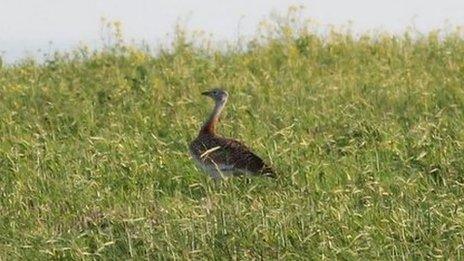Great bustard chicks survive incubator power cut
- Published
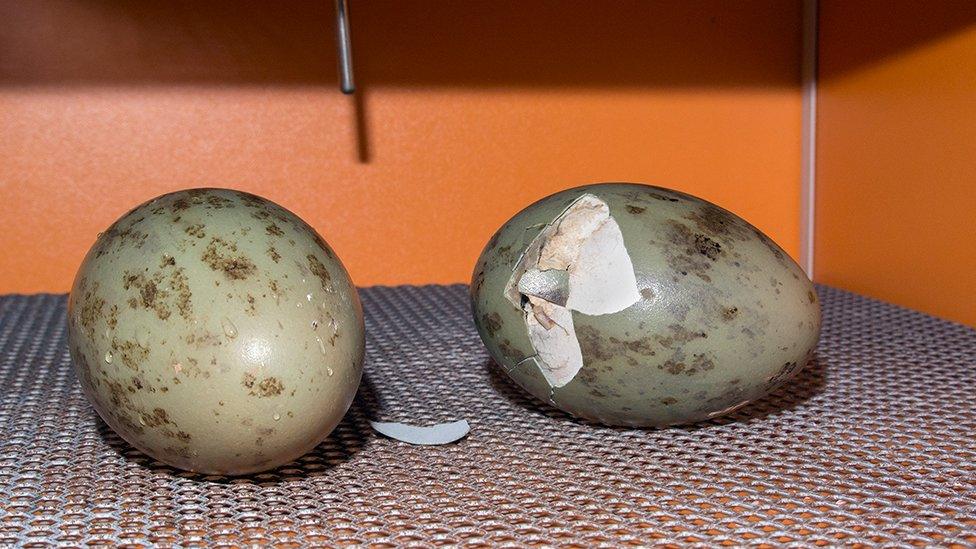
The eggs were taken to Birdworld where they hatched without any complications
A charity has said 10 out of 12 great bustard eggs have hatched despite a power cut on the way home from Spain.
The eggs were being transported by the Great Bustard Group as part of efforts to create a breeding population on Salisbury Plain.
But the charity's 4x4 broke down at Folkestone causing a power cut and risking the eggs inside the incubator.
Director David Waters said: "In the grand scheme, they survived the journey without any trouble or mishaps."
'Healthy chicks'
The eggs need to be kept at a constant temperature of 37.5C.
The incubator was off for 25 minutes causing the temperature to drop by "a couple of degrees," Mr Waters said.
"If the incubator was allowed to cool either too much or too long there does come a point where the eggs would start to suffer which would have been absolutely heart-breaking in so many ways," he added.
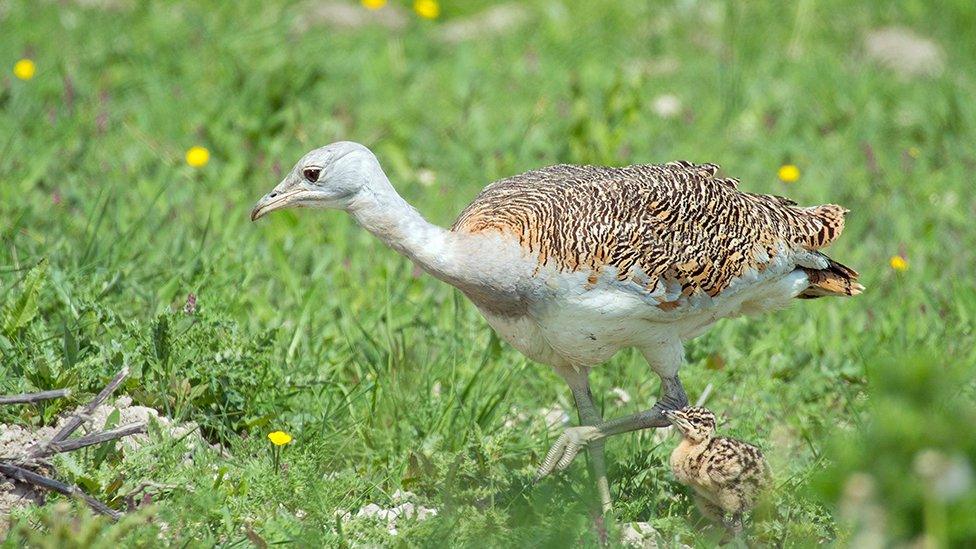
The great bustards are released on Salisbury Plain to create a breeding sustainable population
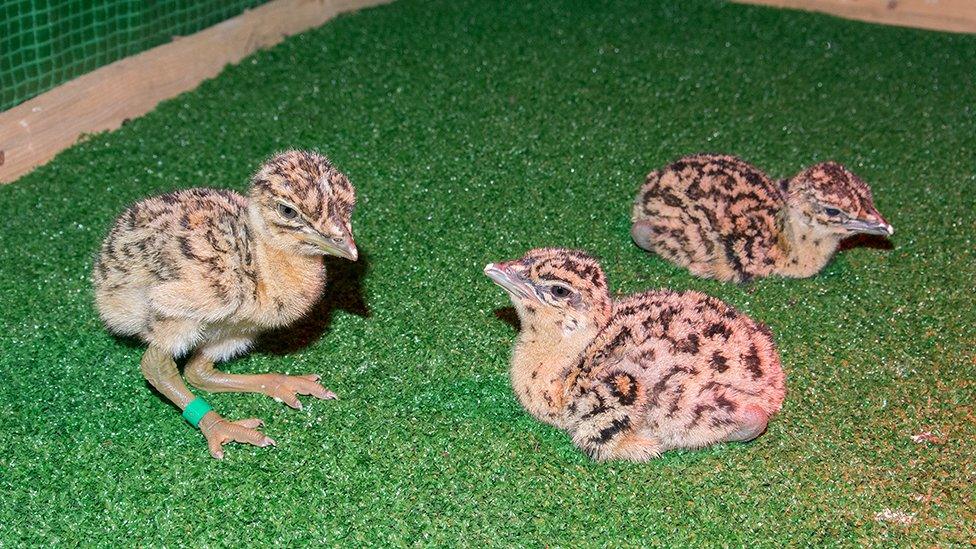
The conservation project has brought back 20 eggs over the past few months
The incubator was plugged in at a petrol station at Folkestone once the problem was discovered.
Later the AA plugged the incubator in to 12-volt chargers while transporting the shipment and Mr Waters to Birdworld in Farnham where the eggs were safely hatched.
"Those 10 chicks are really good, strong, healthy chicks.
"If the incubation hasn't been perfect or close to perfect there are various problems that can occur - there's wet chick syndrome, or you can have curled toes or different things like that which are all suggestive of an incubation problem," added Mr Waters.
This year, 20 eggs were brought back in three shipments.
The eggs were collected from Castilla y León in North-western Spain, and then hatched and released on to Salisbury Plain.
Currently there are around 40 birds in Wiltshire and so far this year, five nests have been spotted in the wild.
- Published24 July 2014
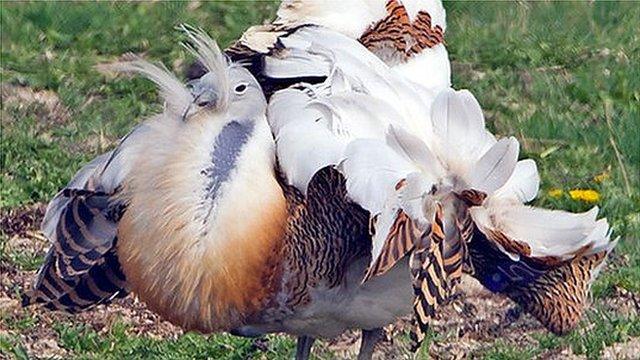
- Published18 November 2014
